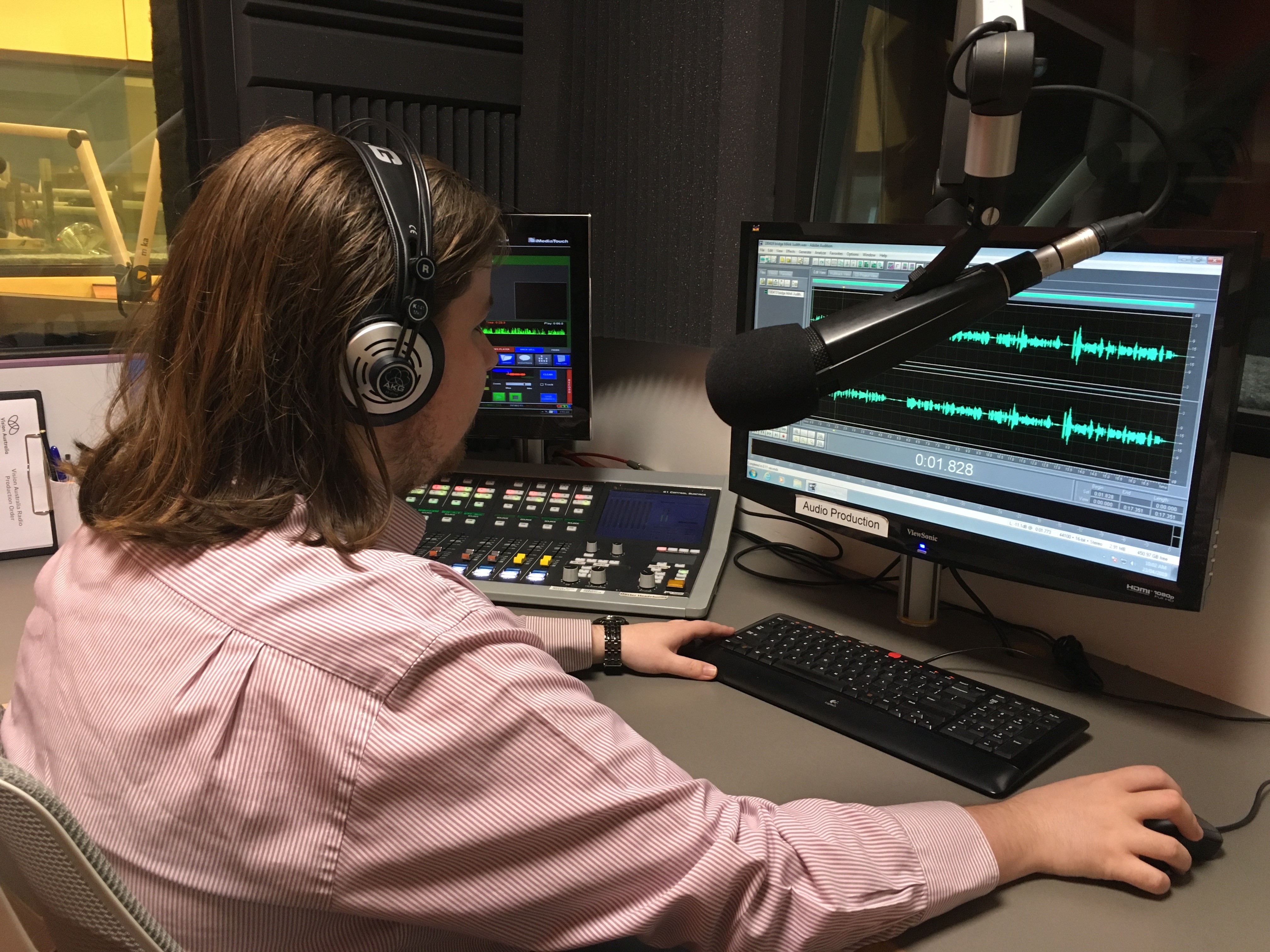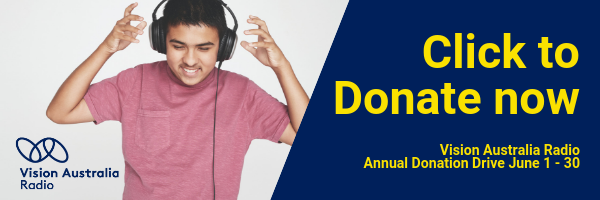Vision Australia Radio graduate Sam Colley gives us an insight into what he does at Vision Australia Radio, where he came from to get here, his ambitions for the coming months and why Vision Australia Radio means so much to him.
- Can you introduce yourself and tell us a little about your background?
I’m Sam Colley and I’m one of the Career Start graduates for 2019, with 40 per cent vision in my right eye and 10 per cent in my left eye. As a recent graduate of Monash University with several years of experience in student radio, I jumped at the opportunity to be able to learn more in a full time role at Vision Australia Radio. I recently completed a Bachelor of Arts with Honours in Linguistics, and as part of the Career Start Program I’m also working with the Communications team. I’ve always had a keen interest in languages and music, so this dual role is perfect for me.
- How did you first hear about Vision Australia’s Career Start Program and why did you choose to apply?
It all really started when I got in contact with the Vision Australia employment services team in Kensington. When I became aware of the possibility of working in communications and radio here at Vision Australia, I decided right away that was where I wanted to be. It was a chance for me to build on my studies and my recent volunteer experience.
- Can you share a little on your eye condition and how that may or may not have affected you in life?
I was born with a condition where there are holes in the structure of the eyes. My left eye was more severely affected to the point where it is a lot smaller than my right eye. This has had an effect on my life but, given that I was born with low vision and received support from Vision Australia from a young age, I came to terms with what vision I did have and tried to make the most of that.
- Can you tell us about your role at Vision Australia?
I currently work at radio two days a week, while the other three days are spent in communications. These two roles overlap with each other quite frequently, so I have enjoyed being across both of these areas. A large part of my role in radio revolves around content creation, VAR features a sizeable section on their website dedicated to radio news, and I’m responsible for maintaining it. Every week I also do a shift as panel operator for Talking Law. This mostly involves marking points in the show that require editing, and balancing the volume levels so the presenters aren’t too loud or quiet.
- What was your first impression of Vision Australia Radio and its role in the community?
Before I knew a lot about Vision Australia Radio, I thought it was like any other radio station. I thought perhaps there was talkback in the morning or afternoon around topics related to blindness or low vision. I didn’t really appreciate just what VAR provides. My first impression was complete surprise, but also appreciation at the volume of material the volunteers present on a daily basis, like reading from newspapers, magazines, books and numerous other publications for those who can’t access written material otherwise.
- How have you contributed to the radio service during your time with us?
I had the opportunity to conduct an interview on air, and this featured on an episode of Talking Vision. I love interviewing people and learning more about what inspires them, or what information they can give to inform people. This and the panel operation work is probably the highlights of what I’ve able to do in the studio, but off air my work on the web has been incredibly rewarding, and highly valued by the radio team. In coming weeks I will also be producing a show called Vision Australia Now, about the latest news from around Vision Australia, and at times what is happening in the greater blindness and low vision community.
- What do you think Vision Australia Radio does best?
The nature of the content we present on air at VAR is so varied and covers so many topics, I think this is really where the service goes above and beyond. It is extremely valuable to have a 24 hour service where listeners can access material like the news, special interest columns or literature among other things, from wherever they are through their radio.
- Why should we get behind the Vision Australia Radio annual donation drive?
We provide such a valuable service to so many people, but it wouldn’t be possible without the generous donations from the public. There really isn’t another station like Vision Australia Radio, and it’s not just those in the blind or low vision community that benefit. People with dyslexia or arthritis or other print disabilities also rely on our station to get their information.
This month we're asking everyone to give what they can, so that we can keep producing the quality content we know makes a huge difference to the lives of so many. Donations of $2 or more are tax deductible, and every donation helps, so please donate today.


